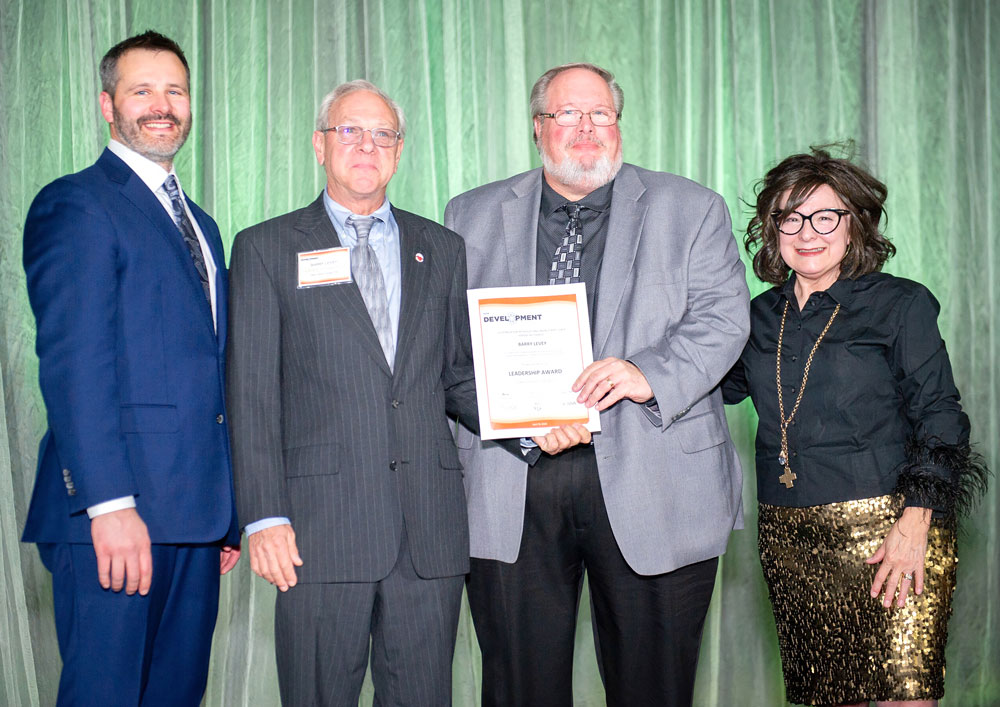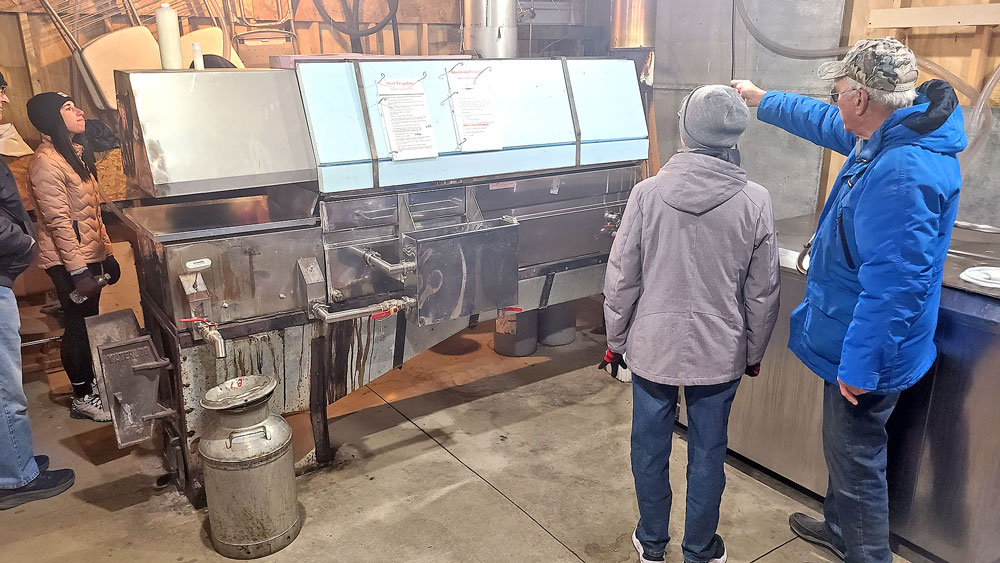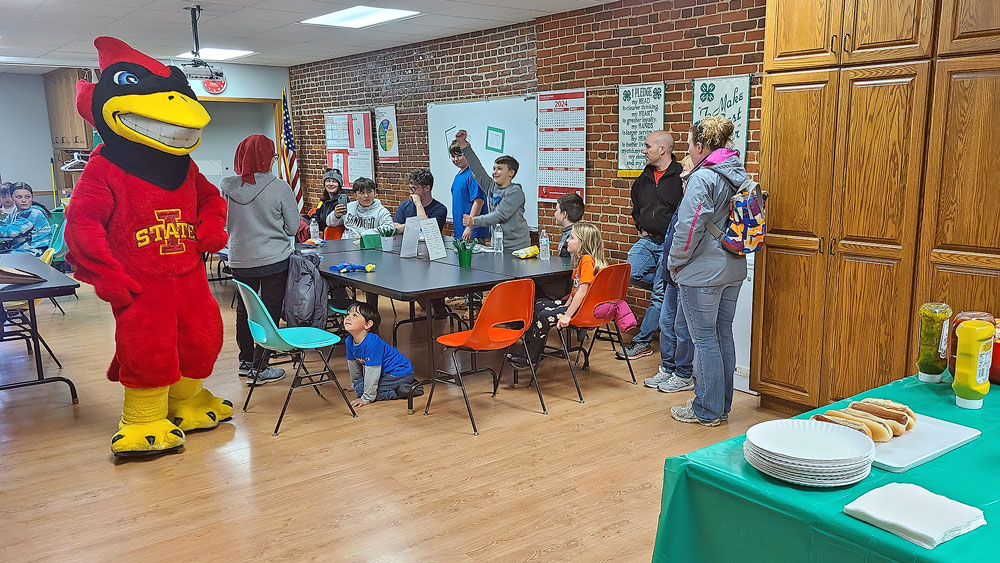Charles City Meals on Wheels program searching for new provider

By Bob Steenson, bsteenson@charlescitypress.com
Know of an organization that would like to prepare and deliver 30 to 50 meals a day to people who really appreciate the service?
The Floyd County Medical Center and the Meals on Wheels organization in Charles City are looking for a group or a business that can take over the daily Meals on Wheels program in the community.
Rod Nordeng, administrator of the medical center, said Meals on Wheels is an important program that needs to continue, but the hospital can no longer afford the financial hit that running the program costs.
“From our fiscal years from 2010 through 2017 it cost the medical center over $1.5 million in lost reimbursement,” he said.
That financial burden would not affect another group taking over the program, and has to do with the complex relationship between the critical access hospital and Medicare reimbursement rates, Nordeng said.
The meals provided by the hospital’s kitchen for Meals on Wheels are included in the total number of meals produced by the hospital in Medicare’s comprehensive cost report, he said.
But since Medicare doesn’t cover the cost of Meals on Wheels meals, it reduces the hospital’s dietary department Medicare reimbursement by the percentage of meals that goes to Meals on Wheels.
The problem, Nordeng said, is that providing specific dietary requirement meals to hospital patients is much more expensive than the Meals on Wheels meals, but Medicare reimbursement is reduced based on the proportion of the number of meals, not the proportion of the actual cost.
According to a chart supplied by Nordeng, the medical center has seen between $134,000 and $228,000 per year in lost Medicare reimbursement in the past eight fiscal years because of the Meals on Wheels program — an average of almost $195,000 a year.
“It was probably OK in those years where we had more of a profit margin where we looked at is as a community service to Charles City,” Nordeng said. “Unfortunately, with the changes with state Medicaid reimbursement, what the insurance companies are doing and clawbacks, we had a very challenging last year.”
Nordeng and Carol Johnson, the medical center dietary manager who is also a member of the Meals on Wheels board, both said it’s likely a community organization or a business could provide Meals on Wheels on at least a break-even rate and probably even make a profit.
Johnson said the hospital staff will provide as much support and training as it can to help some other organization or business take over the program.
One of the things that will be required is an inspected and licensed commercial kitchen.
“We hope to find somebody who is really interested in this and our mission is to help them any way we can,” Johnson said. “We can show them how we’ve done the meals, how we’ve made the choices … we can show them the paperwork that we do … just any way to show them the things that we do and make it easier for them, make the transition easier.”
The Rev. Dennis Niezwaag, the chairman of the Meals on Wheels board, said the hospital has been a great partner in the program.
“I’d like to thank the hospital administration and staff, especially the dietary staff,” he said. “They have just provided exemplary service to us and to the community through the Meals on Wheels program. They have worked to make it really client-centered.”
He said changing sources for the meals will be a big change, but he understands the economic situation the hospital is in.
“We are going to try to find another provider in the community and I’m hopeful we will, Niezwaag said. “We were thinking of approaching the Senior Citizens Center, possibly, or even a local restaurant would be willing to make some extra meals, and hopefully we could find a way to make it profitable for them.”
Nordeng said Meals on Wheels programs often start in local churches, such as the Charles City program did after the 1968 tornado when St. John Evangelical Lutheran Church joined with the Salsbury Baptist Home to start Meals on Wheels.
Other local churches also played an important role in getting the Charles City program going, Niezwaag said.
The hospital took over Meals on Wheels in 1987.
“It’s really been a community effort because we rely on volunteer drivers,” Niezwaag said “There are some communities that pay drivers — we have never had to do that. We’ve had enough volunteers. It’s just been the community coming together.”
Johnson said service clubs, churches, civic groups, 4-H members, businesses, Comp Systems and even high school students doing service hours for their silver cords are among those who have helped deliver meals.
And the program does more than provide a nutritious meal, she said. If someone doesn’t answer the door when a meal is delivered, an effort is made to call them. If there is no answer an emergency contact is called.
There have been a few times over the years when there was a problem that was discovered because of the Meals on Wheels daily visit, Johnson said.
Nordeng said there is no hard deadline on when the medical center must stop its involvement in Meals on Wheels.
“We know it will take more than weeks. It might take some months,” he said.
“But it can’t take years and it can’t take too many months, because just the loss per month when you’re talking anywhere between 10 to 15 thousand dollars a month, that’s a lot to a critical access hospital,” Nordeng said. “We have to generate a lot of revenue to make it up.”
A message to current Meals on Wheels recipients and volunteers regarding the situation was sent out last week, but so far there has been no response, he said.
Nordeng said anyone or any group interested in getting more information should call him or Johnson at the Floyd County Medical Center, 641-228-6830, or the Rev. Niezwaag at St. John Evangelical Lutheran Church, 641-228-3397.
Floyd County Medical Center “will work with the Meals on Wheels board of directors to transition the program to another local organization in a compassionate and orderly manner,” Nordeng said in the information sheet sent to volunteers and clients.
“And that’s really important to us, because we all agree it’s a tremendous program,” he said Monday. “If it were not for the Medicare cost report we wouldn’t be having this conversation. But that’s the reality of being a critical access hospital.”









Social Share